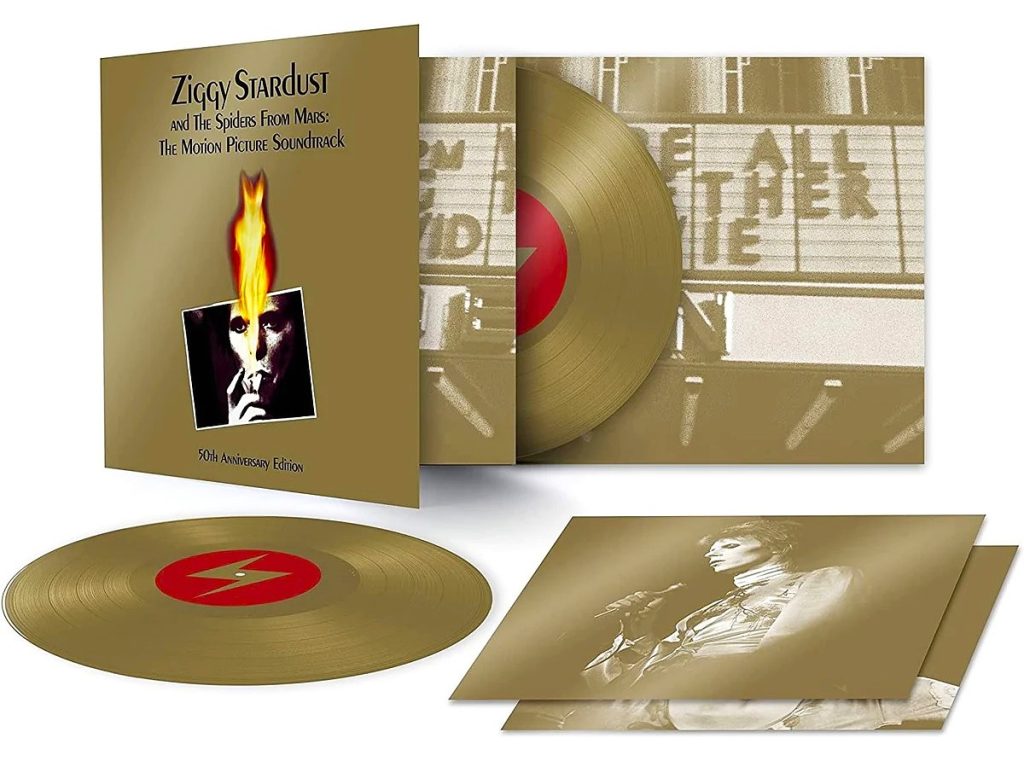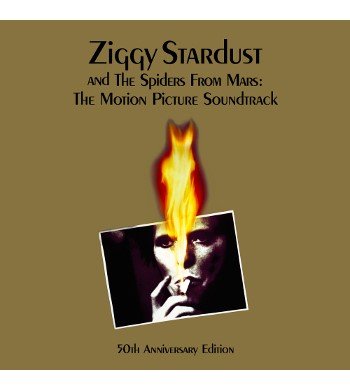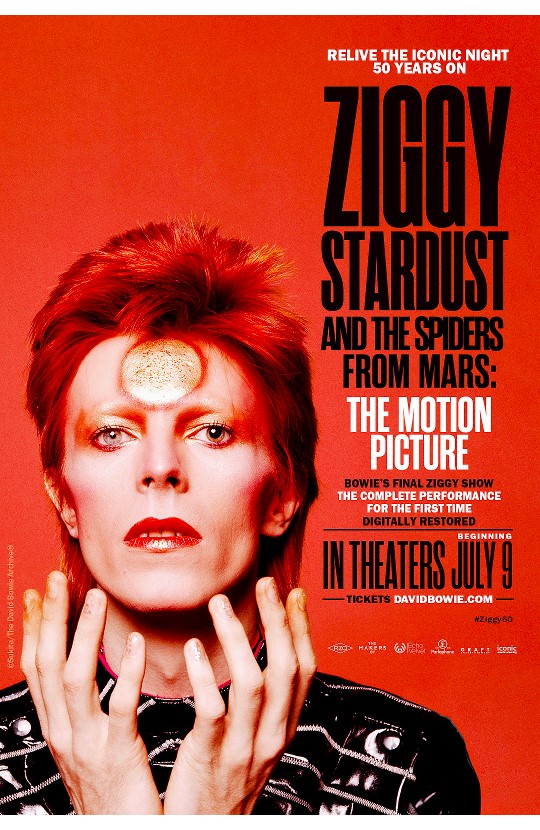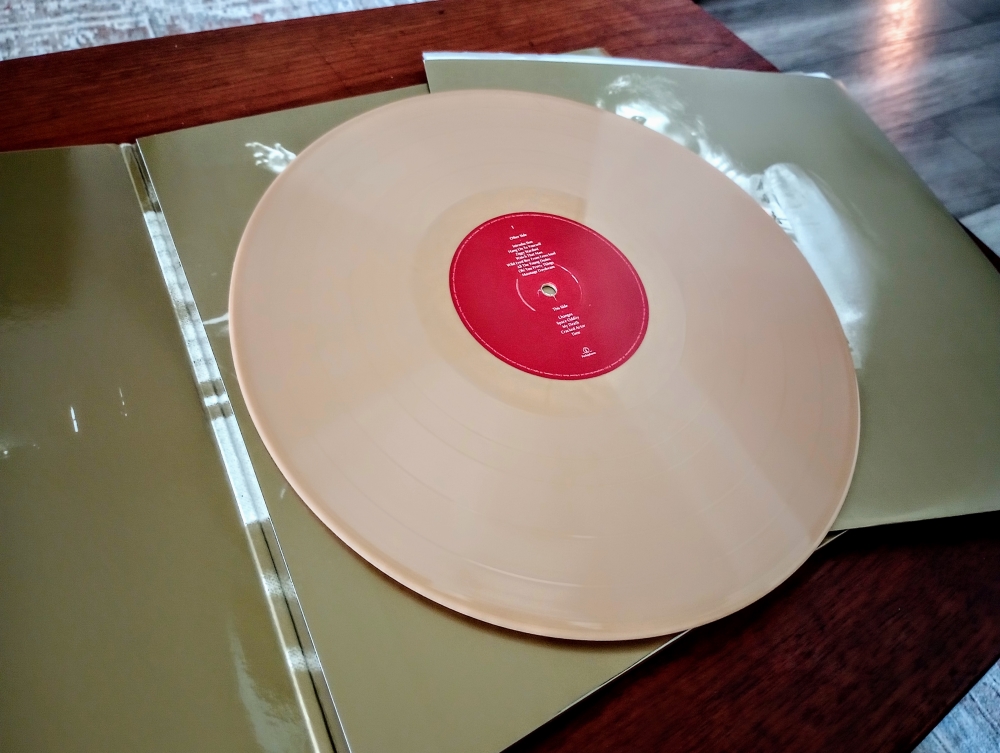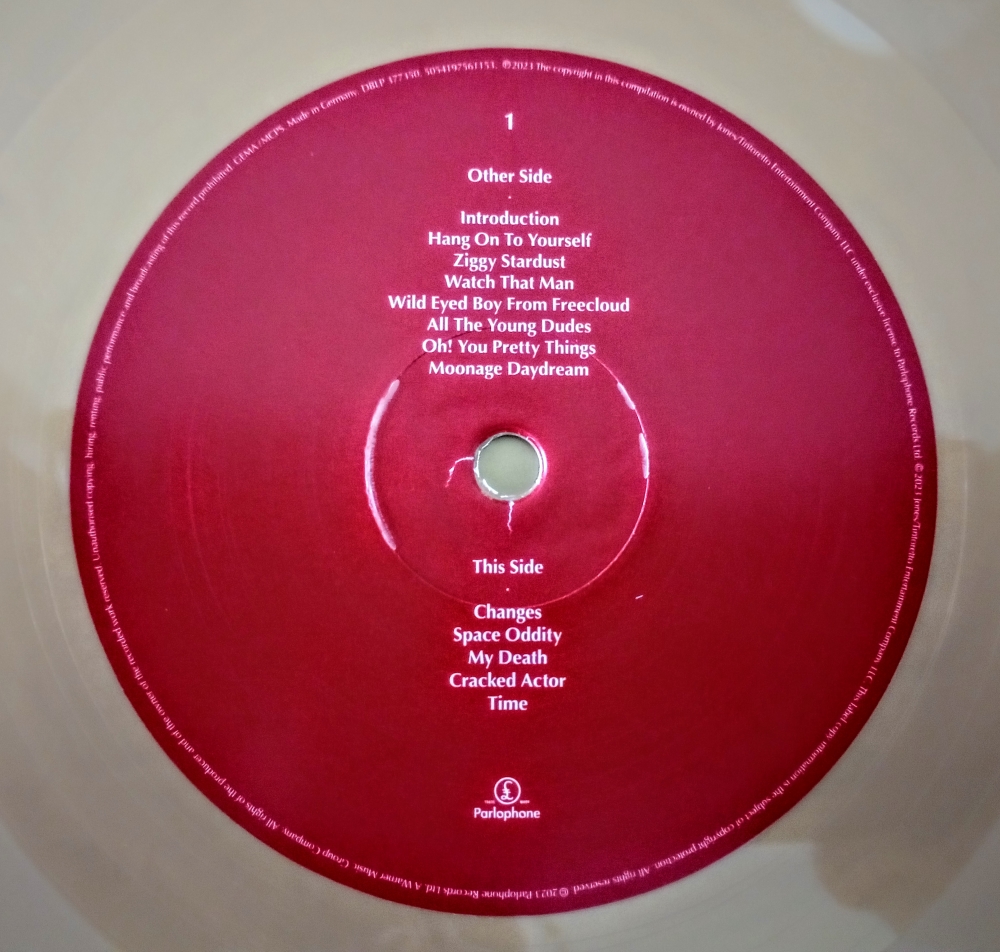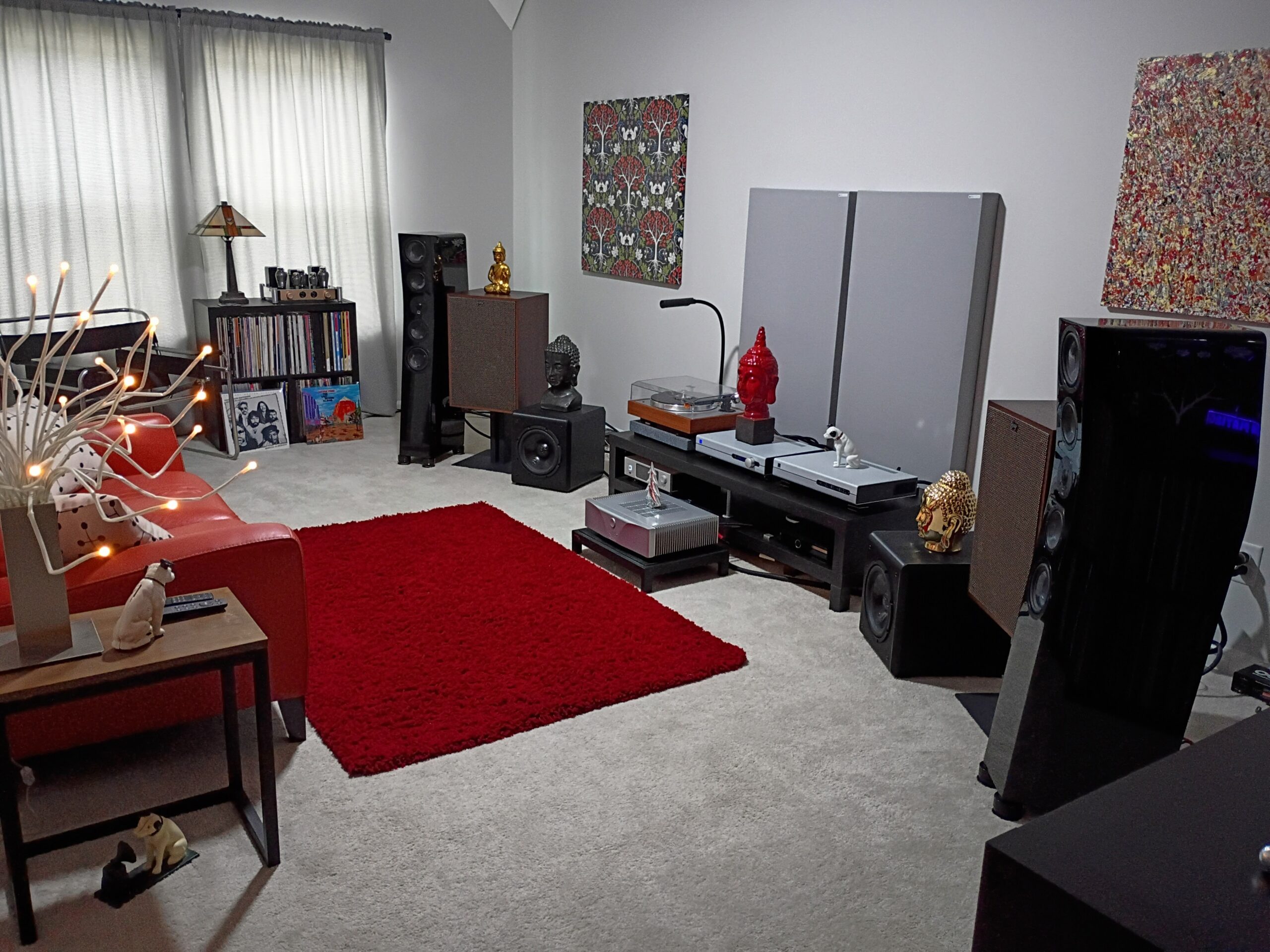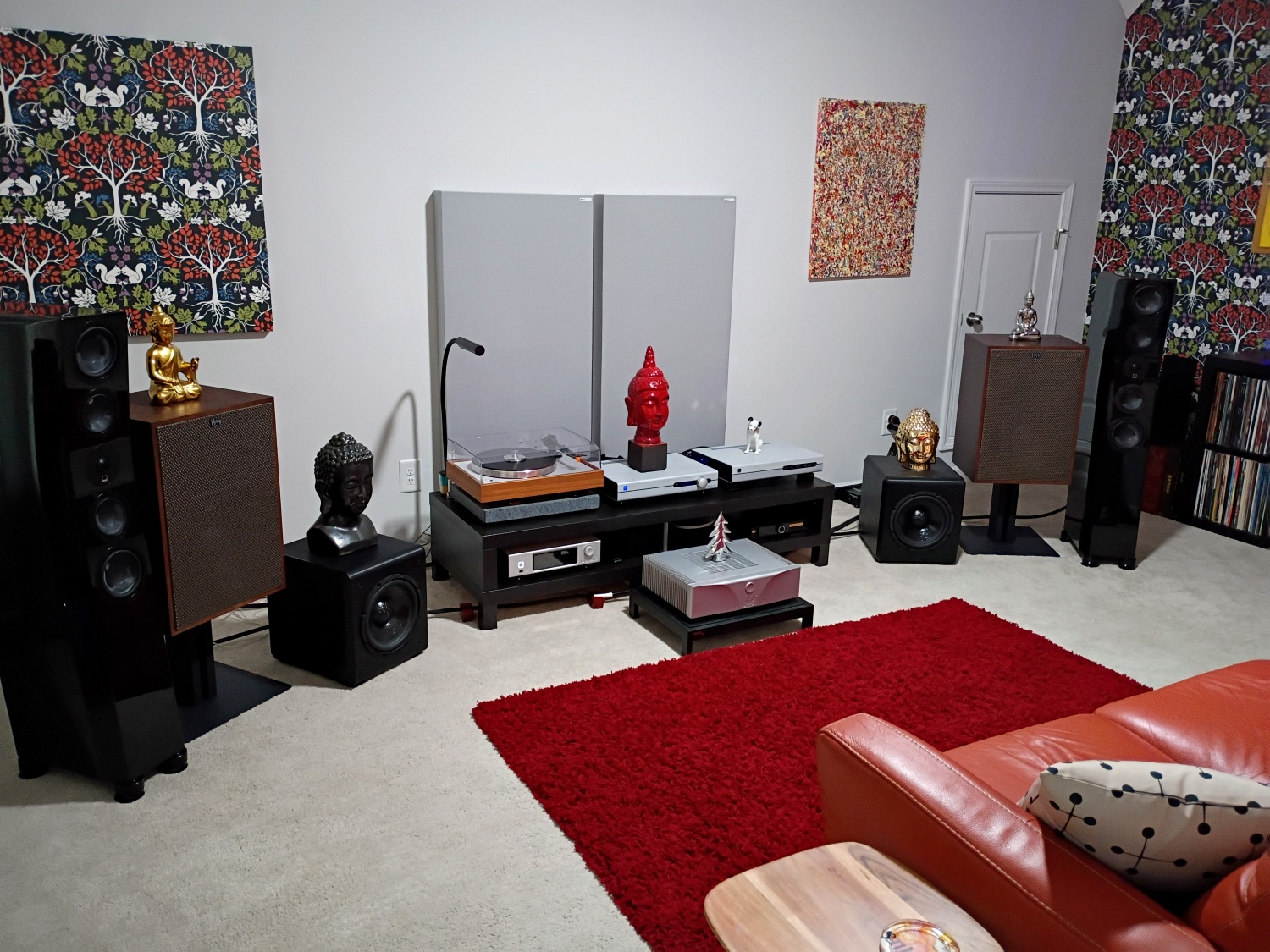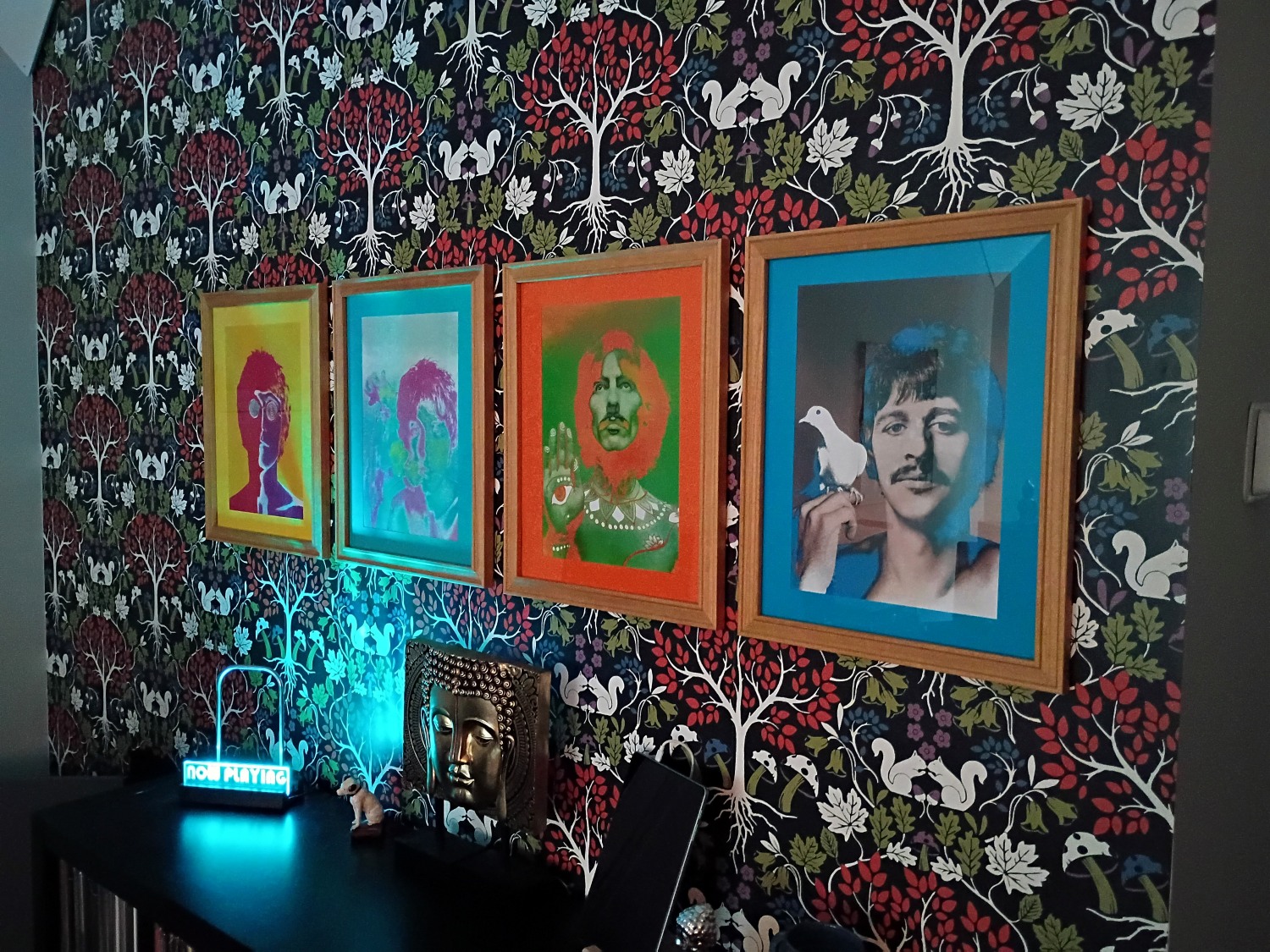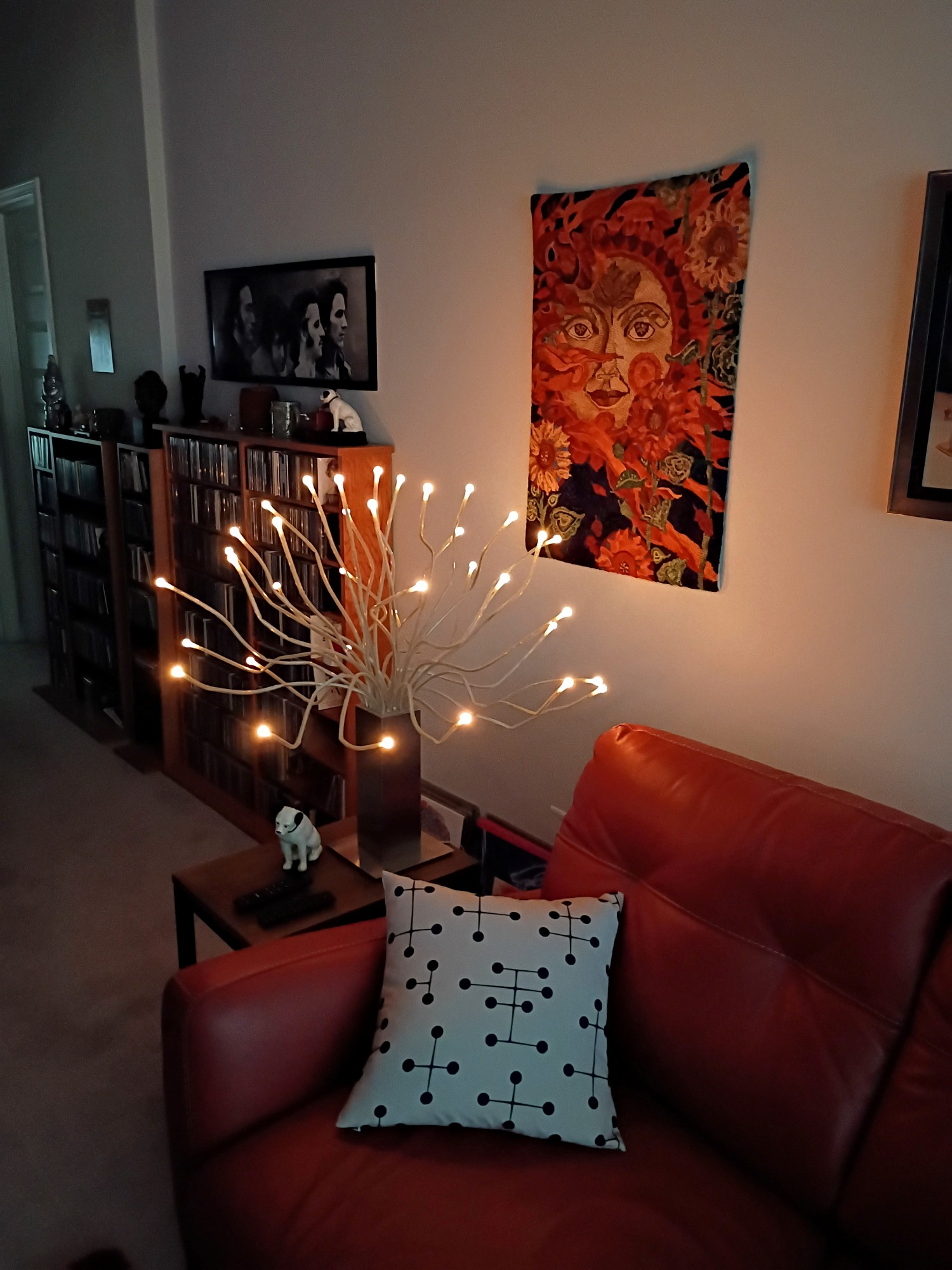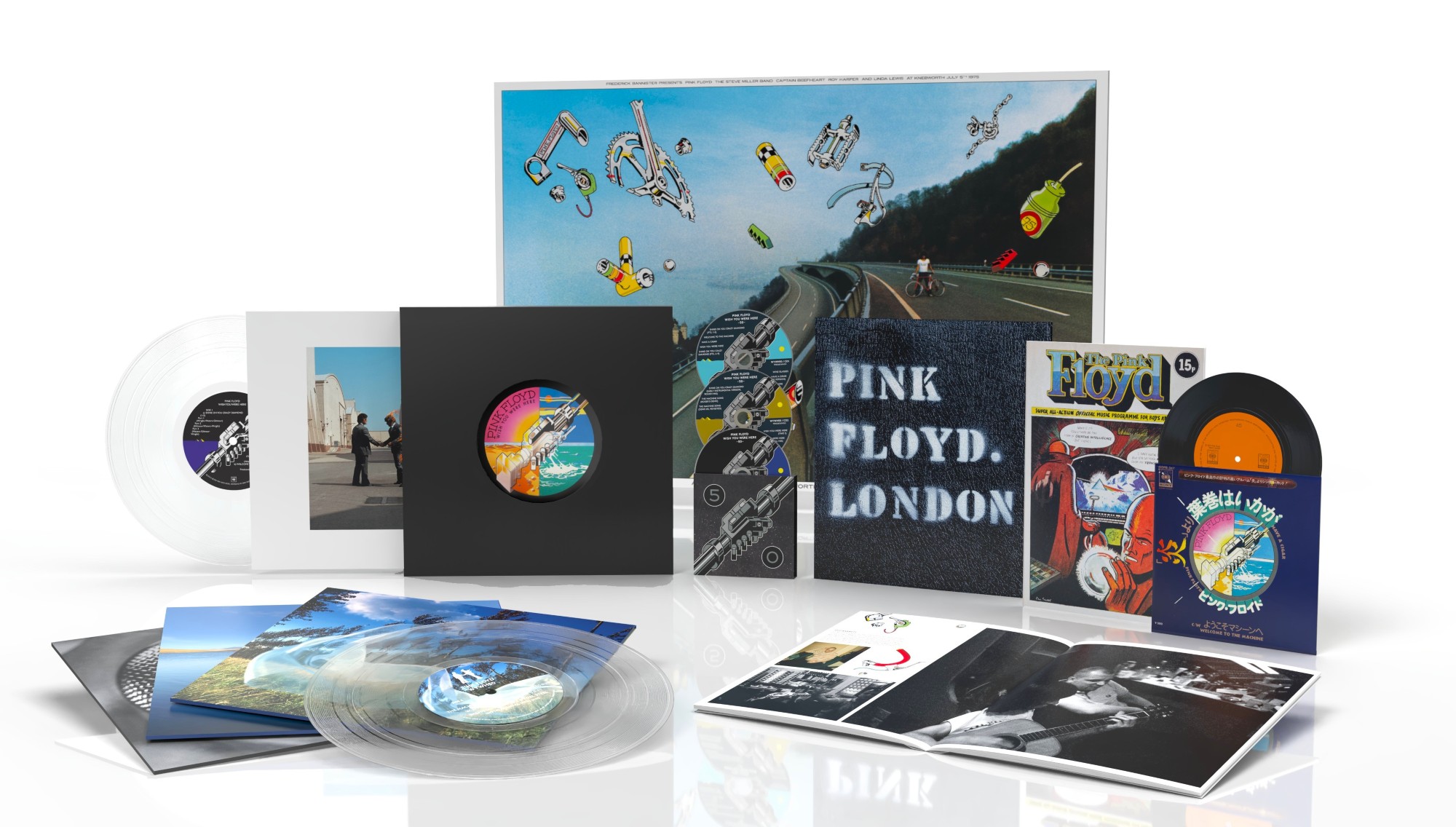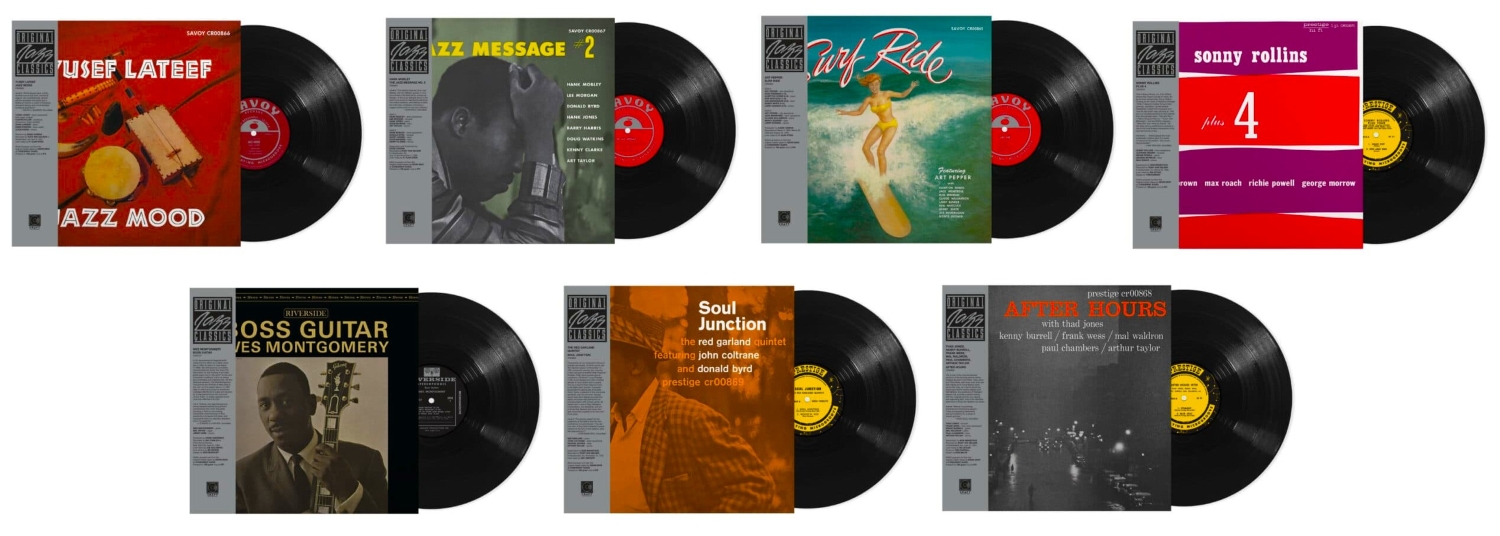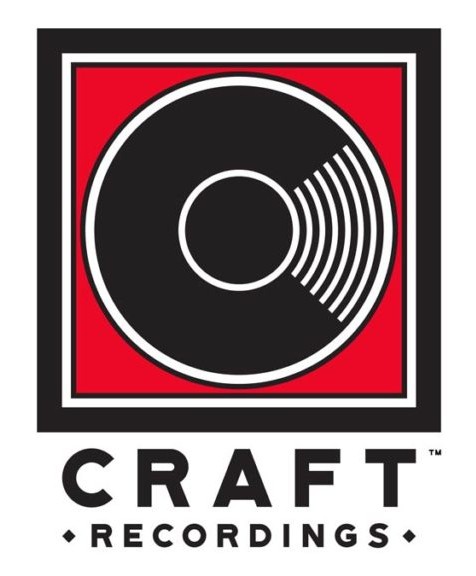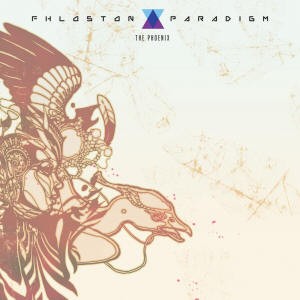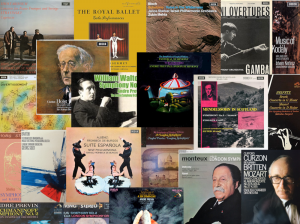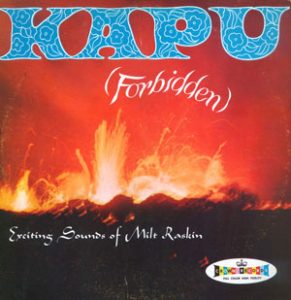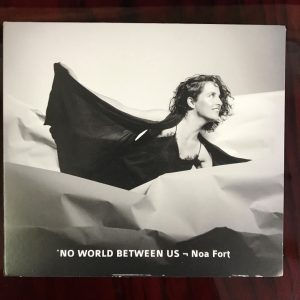July 3, 1973 at the Hammersmith Odeon in London was an important date in David Bowie's musical arc; it was the site of the final show of his Ziggy Stardust And The Spiders From Mars world tour. Fans were delighted towards the end of the show, when Bowie announced that Jeff Beck would join the band onstage. After giving them a riveting medley that was wrapped with "The Jean Genie" and then Chuck Berry's "Round and Round," Bowie shocked his band, his fans, and the music world with an announcement prior to the final encore. Telling his adoring fans that the concert was a very special occasion, because "Of all the shows on this tour, this particular show will remain with us the longest, because not only is it the last show of the tour, but it's the last show that we'll ever do. Thank you." The band looked perplexed, the audience gasped, and the media afterwards had a field day—what type of stunt was Bowie pulling—was he actually retiring as an artist and performer? In an era where you generally had to wait for the next edition of Rolling Stone or NME to drop for any kind of updated information of goings on in the music world, speculation ran rampant!
As it turned out Bowie had decided to retire his Ziggy Stardust alter ego in very grand fashion, but he was also definitely breaking up the band to pursue new musical directions. In only a few years, he'd assume the "Thin White Duke" persona that would take him through his next musical phase and well into the Eighties. Upon eventually learning that Bowie wasn't actually hanging it up, the public and the press breathed a collective sigh of relief.
That night at the Hammersmith Odeon proved to be more than memorable for other reasons: filmmaker D.A. Pennebaker was documenting the proceedings for his 1979 film Ziggy Stardust And The Spiders From Mars: The Motion Picture. And the concert recordings were scheduled to be released as a double album, but Bowie had already lost his enthusiasm for the project; he had already philosophically left Ziggy Stardust far behind. To complicate matters, the sound recordings from the concert were considered by RCA Records to be inferior, so the LP release was shelved until 1983, when the tapes were remixed by longtime Bowie producer Tony Visconti. And were finally issued as the 2-LP Ziggy Stardust: The Motion Picture, albeit with a truncated track list from the actual concert event. Some of the songs were shortened to accommodate the LP format, and the Jeff Beck tunes were completely omitted; Beck was apparently unhappy with his performance that evening, anyway.
The original LP was highly criticized at the time of its release for its lackluster sound quality; Tony Visconti responded in his defense that his remix of the album was "more of a salvage job than an artistic endeavor." One critic described the original LPs as "shameful," and sounding "thin and brittle;" Ziggy Stardust: The Motion Picture was never again domestically reissued on LP following the original US release.
David Bowie, Ziggy Stardust And The Spiders From Mars: The Motion Picture Soundtrack (50th Anniversary Edition). Metallic Gold Colored Vinyl (2) LPs, $44.98 MSRP.
The Spiders From Mars tour consisted of Bowie on guitars, saxophone, harmonica, and vocals; Mick Ronson played lead guitar and provided backing vocals; Trevor Bolder played bass; and Mick "Woody" Woodmansey manned the drum kit. The core group was supplemented by Mike Garson on piano, Mellotron, and organ; Ken Fordham and Brian Wilshaw on saxes and flute; John Hutchinson played rhythm guitar and provided backing vocals; and Geoffrey MacCormack played percussion and provided backing vocals. The performances on the Hammersmith Odeon recording span his career, covering tracks from Space Oddity, The Man Who Sold The World, Hunky Dory, Ziggy Stardust, and the just released Aladdin Sane. The set also features performances of tunes Bowie had written for other artists ("All The Young Dudes") as well as a selection of cover tunes that spanned the likes of the Lou Reed, the Rolling Stones, the Beatles, and Chuck Berry.
For the 50th anniversary of this historic concert event, Warner and Rhino Entertainment have overseen the restoration, remastering and remixing of Ziggy Stardust And The Spiders From Mars: The Motion Picture Soundtrack (50th Anniversary Edition). Tony Visconti was again enlisted to handle the audio restoration, and the late D.A. Pennebaker's son, Frazer Pennebaker oversaw the 4K transfer of the original film to Bluray. The new film transfer had a limited release this summer, appearing at over 1,000 theaters worldwide, with its global premiere taking place at the Eventim Apollo Hammersmith (formerly known as the Odeon) fifty years to the day of the original concert event. The new set is being reissued in various formats, with the truncated and omitted tracks restored, including CD and Bluray editions, along with the 2-LP set, which was supplied to me for review. This marks the first time this album has been reissued in the US on LP in forty years!
The movie poster for the restored 4K print of Ziggy Stardust And The Spiders From Mars: The Motion Picture.
The 2-LP set was manufactured in Germany and pressed on semi-transparent, metallic gold vinyl; no information was available as far as who actually pressed the LPs. They seem much lighter than typical for current LP production; I'd guess that their thickness is about 140 grams. The LPs were both perfectly flat, had glossy, flawless surfaces, and played with no appreciable surface or groove noise. Both LPs were inserted into pre-printed inner sleeves, which featured the printed album information on one side, with a stylized image of Bowie on the reverse. As is my usual practice, I inserted the LPs into rice-paper inner sleeves and then re-inserted them into the pre-printed sleeves. Which allows the LPs to be removed with ease, and with no static or paper-dust build up on the record surfaces.
The double gatefold jacket has a third, fold-in panel, which allows for an extended image of the original Hammersmith Odeon marquee for the concert performance, as well as additional images of David Bowie in full-on Ziggy Stardust mode. The outer and inner surfaces of the gatefold jacket are printed with metallic gold inks, and are finished with a beautiful, high-gloss coating that will protect them from fingerprints. I have an extensive background in high-end commercial print, and in terms of its appearance, Ziggy Stardust And The Spiders From Mars: The Motion Picture Soundtrack (50th Anniversary Edition) is one of the most impressively beautiful gatefold album packages I've ever seen.
Use and listening tests
Click on my name in the header to see the selection of equipment I employed to evaluate the LPs. For my listening sessions, I used the PrimaLuna EVO 300 tube integrated amplifier, playing through the KLH Model Five loudspeakers. The turntable for this session was the ProJect Classic EVO that's fitted with a Hana SL moving coil cartridge. The Hana SL tracked each LP perfectly, and the sound quality was exceptionally good, with only a minimum of ticks here and there. Those abberations lessened with repeat plays, and the gold-colored vinyl was very quiet throughout my evaluation.
Playback of the LPs got off to a bit of a cryptic start; one side of the LP label has a stylized Ziggy Stardust "Z" logo with no other markings, while the reverse side is marked (in very small type) with the track listing for "Other side" as well as for "This side." I had to take another look at the album jacket to confirm which was which, but it still was a bit of a guess at the point when the needle dropped as far as which album side would actually begin playback! After clearing that initial hurdle, everything was fairly straightforward, and I was pretty much shocked by how great the performances—and the sound quality—were from this album that I actually knew so very little about. Especially its troubled history in terms of technical problems with the original recording. Tony Visconti seems to have gotten it right this time, but there's nothing in the printed album information that details his process with the remix/remaster. And I haven't stumbled across any information on the internet, either, but hearing is believing, and the results are pretty spectacular!
The track info on the record label is quite small and rather cryptic!
Mick Ronson's crunchingly aggressive lead guitar is fairly well anchored to the left of the soundstage, and Bowie's vocals are perfectly centered, along with the rhythm section of Trevor Bolder's bass and Woody Woodmansey's drums. Ancillary instrumentation like keyboards and saxes/flutes/percussion are spread across the stage, and the very lively crowd noise extends to the rear of the soundstage and beyond to the sides: listening to these LPs was enveloping to the point of being very nearly like hearing a surround sound performance. I'd never heard any version of this album before, but whatever Tony Visconti did with the tapes must have been darn-near miraculous, especially in comparison to the originals which were panned by the critics for their abysmal sound quality immediately upon release. This ranks for me among the best-sounding live albums from the seventies I've heard, and it's filled with some very memorable performances. Where Bowie covers not only the hits, but also notable deep cuts, like a gripping performance of "Wild Eyed Boy From Freecloud" from Space Oddity, along with an extended (15+ minutes!), powerfully rousing rendition of "The Width Of A Circle" from The Man Who Sold The World. And a previously unknown track (at least, to me), "My Death," (maybe foreshadowing the death of Ziggy Stardust) is offered a very poignant reading.
There's a generous helping of tunes from the then recently released Aladdin Sane, including spirited performances of "Time," "Cracked Actor," "Watch That Man," and "Let's Spend The Night Together," along with the aforementioned version of "The Jean Genie" medley performed with Jeff Beck. And one of my favorite moments on the entire album occurs on side two (This side), which opens with a memorable performance of "Changes," that very deftly transitions into an equally gripping "Space Oddity." The entire album encapsulates a really great Bowie concert performance, from one of his most important periods, and in its new guise offers a glimpse of Ziggy Stardust that probably very few fans have ever actually heard. At least, in the superior sound of this recent remix/remaster!
Conclusion
Ziggy Stardust And The Spiders From Mars: The Motion Picture Soundtrack (50th Anniversary Edition) surprised me with its goodness; not only its superb sound quality, but also the beautiful packaging, which is exemplary for a release as noteworthy as this one. I would have liked more information regarding the new transfer—typically with problematic live recordings as old as this one, there's definitely some digital background magic that must be employed at certain stages, and it would have been nice for full disclosure to hear about the process. Not that it makes much of a difference to me in terms of overall sound; this excellent LP set displayed in spades the kind of analog warmth and clarity that one hopes for from what is essentially an archival reissue. For Bowie fans, it's not only an important historical and artistic artifact, but a must-hear in terms of the improved sound quality offered by the nicely-wrapped new package. And by all reports, the new 4K transfer of the film on the new Bluray release is also a must-watch—I'll definitely need to check that out, as well. Very highly recommended!
Rhino Entertainment
All images courtesy of Rhino, Shore Fire Media, and the author




